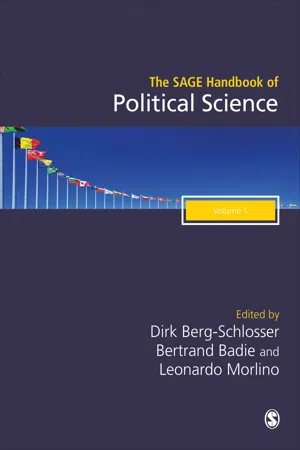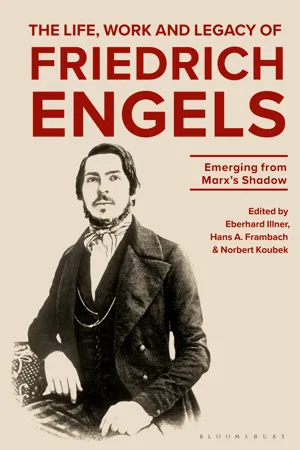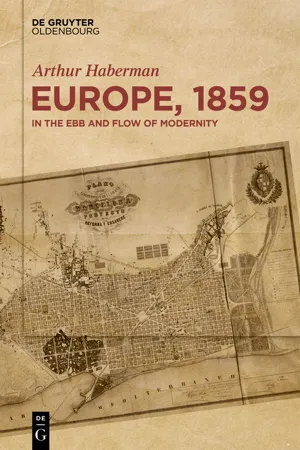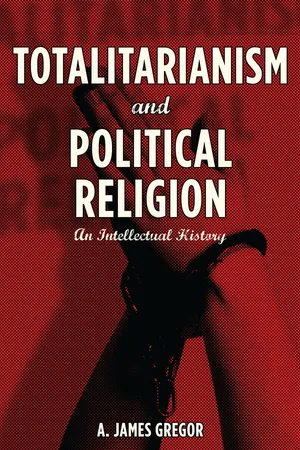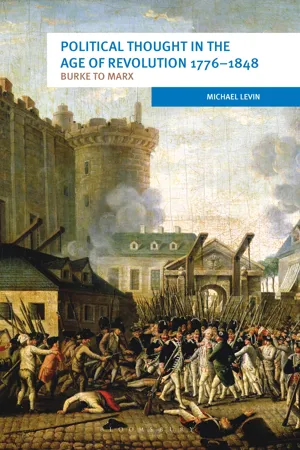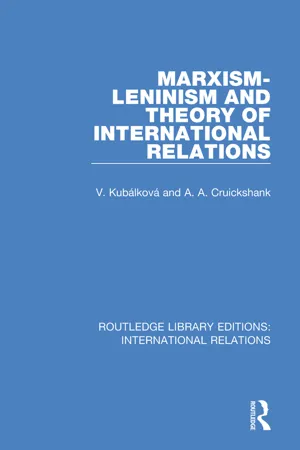Politics & International Relations
Friedrich Engels
Friedrich Engels was a German philosopher, social scientist, and political theorist who co-authored "The Communist Manifesto" with Karl Marx. He is known for his contributions to Marxist theory, particularly his analysis of capitalism and its impact on society. Engels also played a key role in shaping the socialist and communist movements in the 19th century.
Written by Perlego with AI-assistance
Related key terms
Related key terms
1 of 4
Related key terms
1 of 3
6 Key excerpts on "Friedrich Engels"
- eBook - ePub
- Dirk Berg-Schlosser, Bertrand Badie, Leonardo Morlino, Dirk Berg-Schlosser, Bertrand Badie, Leonardo Morlino(Authors)
- 2020(Publication Date)
- SAGE Publications Ltd(Publisher)
7 Marx and Marxism in Politics Dingping GuoIntroduction
Marxism has been defined and studied as a political theory, political ideology and political movement. In political studies, Marxism refers to a specific school of social and political theory about human life, historical development, capitalist crisis and communist revolution, which was developed by Karl Marx and Friedrich Engels during the mid-to-late 19th century, and subsequently elaborated on by their disciples from various backgrounds all over the world. Although there are inconsistencies and contradictions in Marx's theory during the different periods of its development, and there are considerable debates and disputes over its nature and structure, some basic consensus can be reached based on an analysis of Marx's works and the studies on the subsequent evolution of Marxist theory. Marxism is not only one of the most important social and political schools of thought, but also the guiding ideology in the communist revolution and the socialist construction of many countries worldwide.Capitalist Development and the Birth of Marxism
Karl Marx, one of the most famous and influential theorists of the modern historical age from whom the socialist or communist movements have derived their ideas, was not only a political thinker but also social philosopher and economist whose research ranged widely over many fields. Marx has had a profound impact on the thoughts and actions of people in many countries since the mid 19th century, and in the 21st century he is still regarded as the greatest instructor by the political left, including the adherents of communist parties, and is derided as a source of political and social chaos by the political right. The ideas and programs developed by Marx and Engels have been generally called Marxism.Born in Trier, German Rhineland, into a Jewish family on May 5, 1818, Karl Marx received a good education and displayed great potential as an outstanding student. During his student days at the universities of Bonn and Berlin, Marx studied law and the history of philosophy, took a strong interest in the works of Georg Wilhelm Friedrich Hegel and joined a student/professor group called the ‘Young Hegelians'. Marx submitted his doctoral dissertation at the University of Jena in 1840 and received a doctoral degree the following year. This dissertation is entitled ‘The Difference between the Democritean and Epicurean Philosophy of Nature’ and can be regarded as the starting point of his transition from idealism to materialism (Jessop, 1999: 98). After his initial failure to establish an academic career, his liberal political views led him to find employment as an editor of a radical newspaper in Cologne, Rheinische Zeitung - eBook - ePub
The Life, Work and Legacy of Friedrich Engels
Emerging from Marx's Shadow
- Eberhard Illner, Hans A. Frambach, Norbert Koubek(Authors)
- 2023(Publication Date)
- Bloomsbury Academic(Publisher)
CHAPTER 2 Engels on Marx: Biography as politicsWilfried NippelFigure 2.1 World History: The Communists , 1848, Fliegende Blätter, Munich. © In the public domain.After Marx’s death, Friedrich Engels explained what Marx had called their ‘partnership’1 in various terms. He had, he said, always been happy to play ‘second fiddle’ to Marx, but when ‘in matters of theory’ he had been called upon to deputize for Marx, he had – he admitted in a private letter2 – ‘inevitably made blunders’. In a later publication he saw his role as that of ‘representing our views in the periodical press, specifically against our opponents, so that Marx had time to complete his major work. Thus it fell to me to present our approach for the most part … in polemical form’.3In a celebratory piece for Engels’ birthday in 1887, his ‘pupil’ Karl Kautsky wrote – in close collusion with his friend and master – that Marx ‘had systematically elaborated the jointly developed theory for the learned world’, while Engels had defended it polemically against all comers, addressing ‘the great questions of the present day … and the attitude to these issues taken by the proletariat’. At the same time he emphasized that, with Anti-Dühring (published in 1877–8, i.e. during Marx’s lifetime), Engels had composed ‘the foundational work of modern socialism’, in which ‘the most important insights of the whole of modern knowledge are presented from the standpoint of the Marx-Engelsian materialist dialectic’.4 In an obituary, Eduard Bernstein, Engels’ other ‘master pupil’, called him ‘the interpreter and transmitter of the major aspects of our movement’. History will see him as ‘the co-founder of modern scientific socialism’ and grant him ‘the appropriate place beside Karl Marx that he had always modestly declined to assume’.5 - eBook - ePub
Europe, 1859
In the Ebb and Flow of Modernity
- Arthur Haberman(Author)
- 2022(Publication Date)
- De Gruyter Oldenbourg(Publisher)
Chapter VII Karl Marx and Friedrich Engels: Understanding Industrial Society
In 1859 Karl Marx was living in London with his family, an exile, often in financial difficulty. Friedrich Engels was in Manchester, working in his family firm. The two men began their intimate and productive friendship and collaboration in 1844, when they met for the second time after Engels finished his Condition of the Working Class in England. They saw one another regularly when in the same city and corresponded nearly every day when not. Engels often contributed money to help the Marx family, Karl, his wife Jenny, and their three daughters. The family was poor, and their clothes and possessions were sometimes in the pawn shop. Karl and Jenny Marx had seven children, but they suffered the loss of four of them in childhood, including the tragic death of their beloved son Edgar, at age six, in 1855.There was in 1859 no such thing as Marxism, nor were there Marxists. Marx was then well known in socialist and communist circles and well regarded as an intellect and philosopher by many. However, at that time there were many socialists and many socialisms. Proudhon was perhaps the most revered. Bakunin was a rival. Lassalle would soon be popular. All would change with the publication of the first volume of Das Capital in 1867, and with the ideas and events emanating from the International Workingmen's Association (IWA), usually called the First International (1864 – 1876). By 1876 Marx was famous and notorious on the European continent, his ideas in the forefront of socialist thought.In the 1850s Marx spent much of his time in the British Museum, researching and writing. He had some income as a regular European correspondent for the New York Tribune, a newspaper founded by Horace Greeley, which grew in that decade to become the largest daily in New York City.In England, he was largely unknown and mostly ignored. Unlike Mazzini and Kossuth, who were popular and lionized, Marx was regarded as just another person unwelcome in his native land and several other places, who found refuge in London. As long as he obeyed the law and stayed out of trouble, he was tolerated. Somehow, London and England could house many radicals without suffering any serious problems.111 - eBook - ePub
Totalitarianism and Political Religion
An Intellectual History
- A. Gregor(Author)
- 2012(Publication Date)
- Stanford University Press(Publisher)
punish a difference of opinion in science. One punishes moral infractions, or religious heresies, or apostasies. An appeal to evidence, not punishment, is expected to resolve scientific disagreements. Punishments—ostracism, shunning, excommunication, defrocking, the imposition of silence—attend religious disputes. In science, none of that is expected to take place. All of which leaves one with a sense that Engels conceives himself dealing with something other than science as science is understood in the contemporary world. His position would seem to be the product of those religious sentiments that made up so much of his thought during his young manhood. They seemed to have influenced his thought well into his maturity.It was in delivering his “Outlines of a Critique of Political Economy,” to the Deutsch-Französische Jahrbacher, that Engels engaged the serious interest of Karl Marx—with whom he thereafter was to enter into lifelong collaboration. Dismissed at their first meeting in 1842, Engels subsequently impressed Marx with his “Outlines” Marx read the essay and prepared an outline in summary for his subsequent use. For years Marx was to refer to the work, and repeatedly cited it in the course of his later publications. Much later, he still spoke of it as a “brilliant sketch” There is the unmistakable suggestion in the available evidence, that Engels’ essay was of more than passing interest to Marx; in fact, some have suggested that it exercised a “decisive influence” on the development of his thought; and that is very likely the case.40 All the sentiments and the argued vision with which Engels identified himself were to find a place in Marxism as a revolutionary ideology.By their meeting in Paris in August 1844, it was evident to both Engels and Marx that each had found in the other an intellectual ally. They were kindred spirits who would collaborate for the remainder of their lives. Both were convinced that they stood on the threshold of a new epoch in world history. They not only agreed in their anticipations of the immediate future, but their very agreements were phrased in Hegelianisms that were to remain common to them throughout their collaboration. Anyone familiar with their work can hardly fail to recognize how much Hegelianism molded both its form and content. Together, inspired by common sentiments, and armed with neohegelian enthusiasms, they were destined to shape revolutionary thought for more than a century.Karl Marx (1818–1883)
In the years before his fateful meeting with Friedrich Engels, the young Marx was occupied with his own education. He was a gifted student. Born to a well established family, his early life was governed by literary and artistic interests. Whatever literary efforts survive from his youth provide evidence of his acute mind and aggressive intelligence. Even his earliest correspondence was well crafted and engaging. With the intellectual maturity that came with his university studies, his productivity became increasingly impressive. His doctoral dissertation was notable, tightly written, carefully researched, conceptually focused, and clearly satisfactory to his academic mentors.41 - eBook - ePub
Political Thought in the Age of Revolution 1776-1848
Burke to Marx
- Michael Levin(Author)
- 2010(Publication Date)
- Bloomsbury Academic(Publisher)
Rheinische Zeitung in October 1842, and when the two met in Cologne a month later, Marx associated Engels with the Berlin radical Young Hegelians from whom he then wished to dissociate himself. So the first meeting was not auspicious, but a year later, Marx read an article by Engels entitled ‘Outlines of a Critique of Political Economy’. The effect on him was fundamental. Engels had provided just what the Young Hegelians most lacked, an understanding of political economy from a philosophical perspective. Engels also had the advantage of outstanding journalistic skills and a knowledge of social conditions in England. He next met Marx in Paris in the summer of 1844 when returning to Germany after nearly 2 years in England. This time, his reception was much warmer and so their collaboration began, producing the foundation texts of what became known as Marxism, a label that implicitly designates Engels as the junior partner. However, his contribution was substantial. For the moment, we can note that it was Engels who first directed Marx to the study of economics, who led to his first acquaintance with factory conditions in industrial England, became his closest friend and intellectual collaborator, the advocate and populariser of their joint beliefs and also Marx’s major source of financial support during 34 years as a refugee in London. For more than half of these years, Engels continued his work in the Manchester branch of the family firm, Ermen and Engels, leading a strange dual existence as businessman and revolutionary. He was outwardly the very picture of respectability, for he attended the concerts of the Hallé orchestra, rode with the Cheshire Hunt and became Chairman of the prestigious Schiller Institute. Simultaneously, however, he corresponded regularly with Marx in pursuit of their revolutionary aims and, away from the city centre, maintained a second home where he lived with Mary Burns, a working-class Irish woman. She died in 1863, and Engels was happy to be able to retire in 1869 at the age of 49. A year later, he joined Marx in London, where he lived until his death in 1895.The Historical Process
The Marxist system is the major example of the more general theory of progress that was widely accepted in our period. We have already seen variants of it with Paine, Hegel and Tocqueville. Like Tocqueville, Marx believed that modern society was destined to become more equal; like Hegel, indeed from Hegel, he accepted the idea that development is a product of differences between opposing tendencies. For Hegel, like Plato long before him, the conflict was one of argument and counter-argument at the level of ideas. Marx took up this general structure but gave it a new content. For him, the dynamic behind the historical process was provided not by philosophical argument but by actual clashes between social classes with opposed vested interests; that is, between those, on the one hand, who own the wealth on which productivity depends and those, on the other, who have nothing apart from their ability to labour. In applying this analysis throughout history, Marx and Engels claimed to understand how conflict within feudal society had generated what they called bourgeois or capitalist society. Furthermore, they claimed that this method enabled them to predict how structured antagonism within bourgeois society would inevitably lead to the achievement of communism. - V. Kubalkova, A. Cruickshank(Authors)
- 2015(Publication Date)
- Routledge(Publisher)
This central work they claim, although in fragmentary form, exceeds in importance by far either Manuscripts or Capital. 19 The second major problem to be dealt with is Marx's association with Engels. The association gives rise to many complex, perhaps insoluble, questions that are nevertheless too important to be ignored. In this regard let us say briefly that the questions we refer to here are contained in any one of three categories: the interpretation and evaluation of Engels's thought as a whole; the comparison of Engels and Marx; and Engels's influence on marxism. 20 Significantly, the partnership of the two men has been discussed and analysed more in the West than in the East. Early interpreters such as Mehring, Kautsky and Plekhanov, as well as contemporary Soviet marxists, have dismissed this question as unimportant, and there are also no lack of other revisionists and non-marxists who believe that Engels either distorted Marx's ideas or was to be blamed for his ideas becoming an ideology—or indeed believe both to be true. Engels, who survived Marx by twelve years, is certainly responsible for the posthumous interpretation of marxism; indeed one has to agree with Carlton 21 that it was Engels who 'put the match to the explosive material in Marx's mind'. Engels is responsible for what has sometimes been described as 'orthodox codification' on which Lenin's subsequent translation could have been based. Many authors have treated Marx and Engels between 1844 and 1883 (when Marx died) as the authors of a single system of ideas 22 and in that period it would be rather difficult if not impossible, in the case of the collective works and those that were written by Engels under the name of Marx, to distinguish between the two writers, since their ideas must have been to a great degree convergent (hence the possibility of their partnership)
Index pages curate the most relevant extracts from our library of academic textbooks. They’ve been created using an in-house natural language model (NLM), each adding context and meaning to key research topics.
Explore more topic indexes
Explore more topic indexes
1 of 6
Explore more topic indexes
1 of 4
